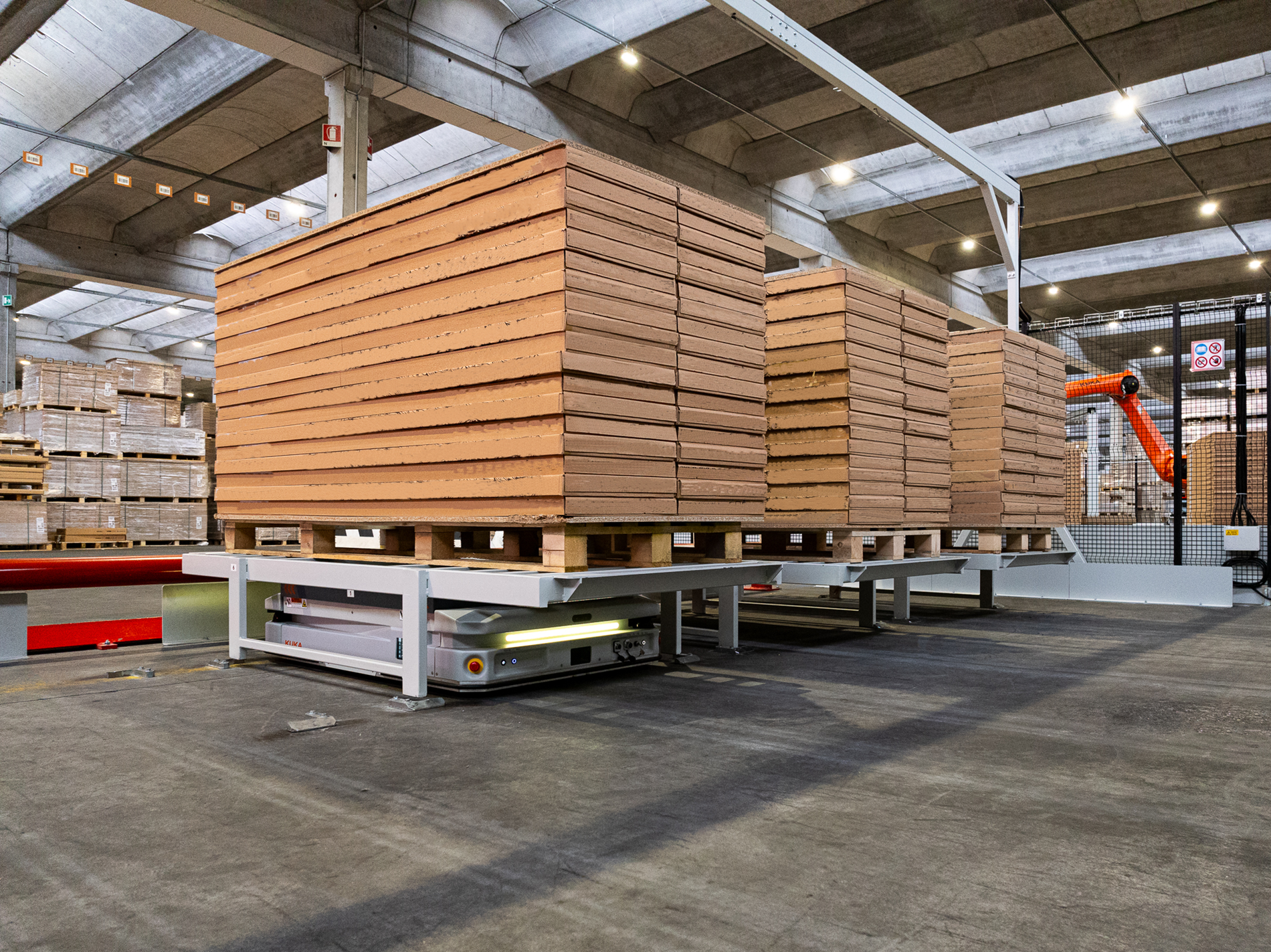
Automated furniture manufacturing enhanced by smart intralogistics and industrial robotics
An advanced automation system is revolutionizing logistics in the furniture industry. Using a robotic palletizing system and autonomous mobile platforms by KUKA, Formetal is automating and optimizing panel handling for furniture production.
We see AMRs as a future-proof technology that not only addresses complex logistics but also boosts safety across production environments.
Orchestrating intralogistics processes: autonomous mobile robots and robotic palletizers perform in perfect sync
To enhance furniture manufacturing and material handling processes, Formetal implemented a smart intralogistics solution combining a robotic palletizer with autonomous mobile robots (AMRs). After evaluating various automation technologies - from conveyors, AGVs to AMRs - the customer chose AMRs for their flexibility, safety, productivity, and scalability, explains Federico Galli of Formetal. Operators place product stacks in loading bays, and mobile robots transport them to the palletizing robot. The industrial robot performs automating palletizing and depalletizing to efficiently assemble the pallets, which are then returned by the AMRs for pickup. The KUKA.AMR Fleet software coordinates the robot fleet autonomously, reducing downtime and offering an intuitive interface for easy operation.
How AMRs lower logistics risks and improve cost-efficiency
“Thanks to this solution, the cycle time has gone from ten to seven minutes to produce a pallet, optimizing workflows and reducing operating costs,” says Federico Galli. The presence of AMRs has reduced forklift traffic in operational areas, decreasing the accident risk between machines and operators. "We have reduced the physical load on operators and optimized the production flow, ensuring greater safety, efficiency and precision in operations," concludes Federico Galli. With advanced mobile robots, your intralogistics becomes not only autonomous - but also efficient, flexible, and safe.

Comparing scalability: AMR, AGV or Conveyor
Adopting AMRs has been a significant improvement over traditional technologies such as conveyors, linear units and AGVs. “In the case there is an increase in production, we just need to add a robot or an AMR, unlike conveyors or linear units robots, which require complex structural changes”, Federico Galli points out. AMRs, in fact, adapt to spaces and workflows, providing greater scalability.
Another key advantage is flexibility: while AGVs are suitable for large fleets and extended environments, AMRs fit easily into more dynamic contexts, without the need to have rigid infrastructure such as rails or magnetic guides. "AGVs would have been too complex for this process. AMRs, on the other hand, provide a more flexible, scalable, safe and clean facility, lowering costs compared to more traditional solutions," concludes Federico Galli.

What makes KUKA AMRs future-ready: from adaptability to trusted service
"AMRs have impressed us with their ability to adapt to different configurations. A minimal investment is enough to adapt the solution to different sizes of materials to be handled; we can reconfigure the system without having to redesign everything from zero," says Federico Galli of Formetal. Having a single partner for robots and AMR has been an added value: "In the furniture industry, KUKA is an absolute leader, and we prefer to work with high-quality partners that guarantee reliability and service. Having only one interlocutor has given us a great advantage, especially for technical support: knowing that there is always someone ready to answer makes the difference", concludes Federico Galli.





